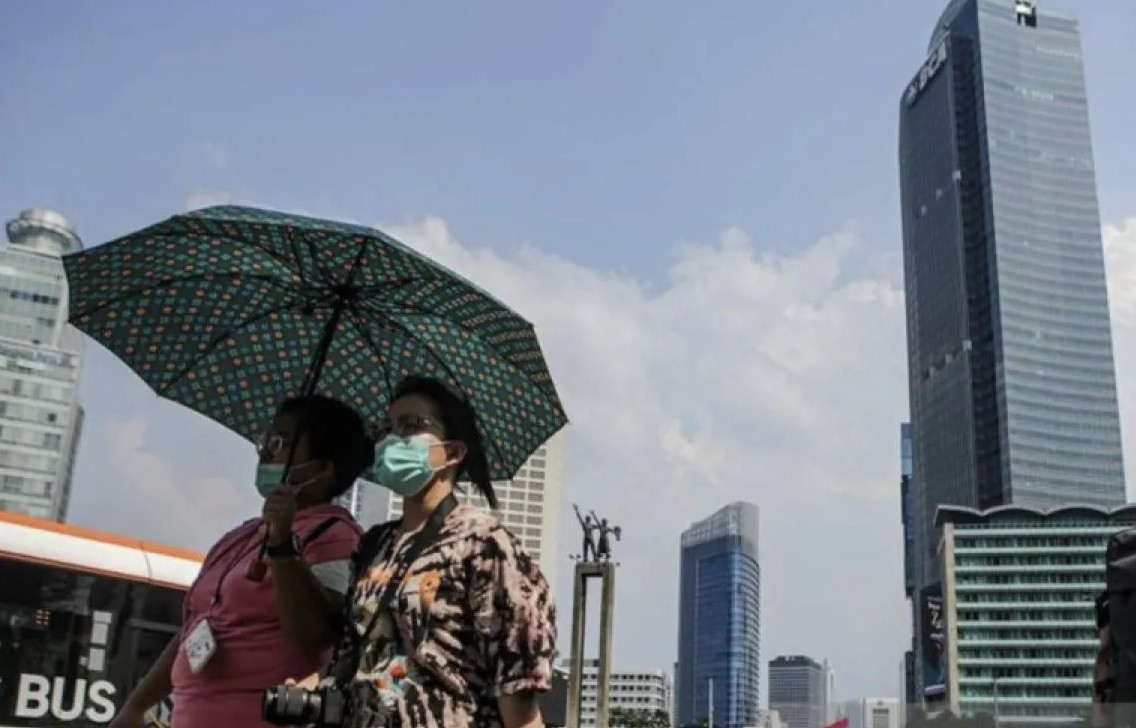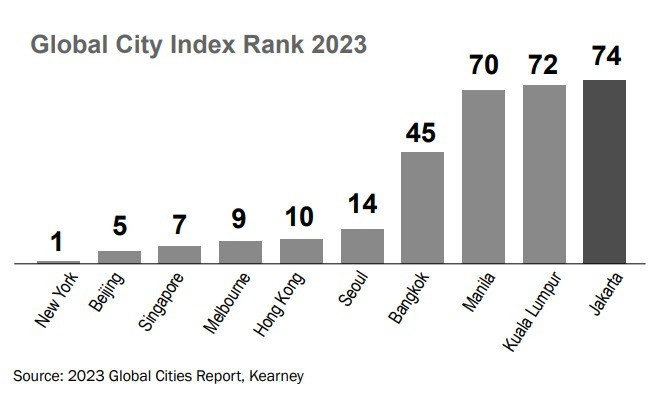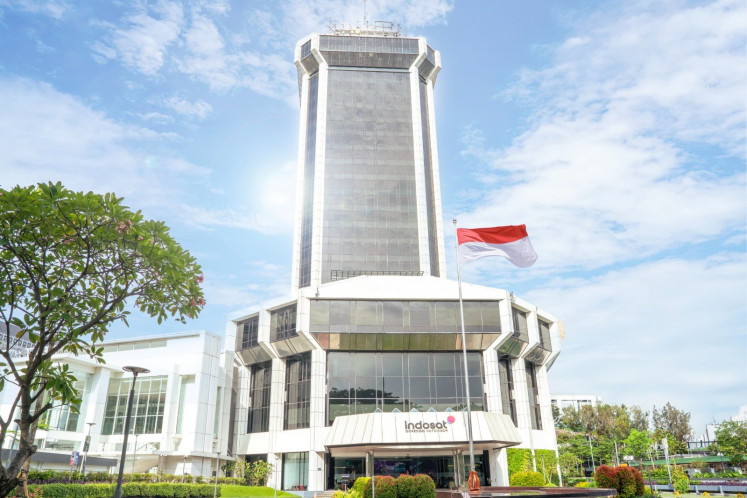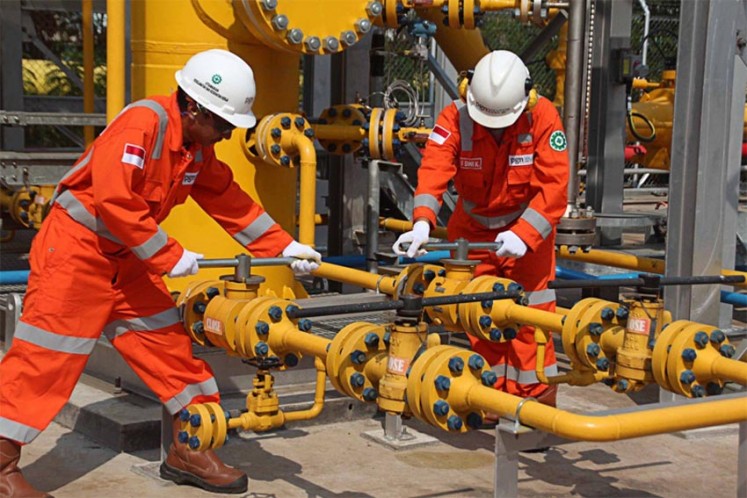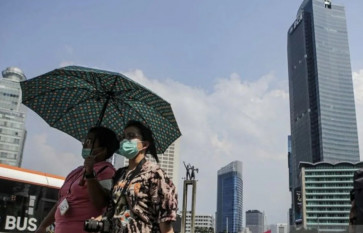Popular Reads
Top Results
Can't find what you're looking for?
View all search resultsPopular Reads
Top Results
Can't find what you're looking for?
View all search resultsDeveloping Jakarta into a global city
The relocation of the national capital to Nusantara presents a significant opportunity for Jakarta to become a more modern, comfortable and healthy city for its residents.
Change text size
Gift Premium Articles
to Anyone
T
he government has issued Law No. 2/2024 on the special capital region of Jakarta. Article 3 of the law designates Jakarta as the nation’s economic center and a global city. However, Jakarta's competitiveness is currently lower than global cities that function as centers of trade, services, financial services and national and global business activity. In other words, there is a gap between the current conditions of Jakarta and those of global cities. This article discusses the problems and challenges faced by Jakarta and provides strategic recommendations for the government to push Jakarta as a global city.
The relocation of the national capital to Nusantara presents a significant opportunity for Jakarta to become a more modern, comfortable and healthy city for its residents. The government estimates that around 1.2 million Jakarta residents will relocate to Nusantara as part of the capital relocation program by 2029. In the future, the government plans to design Jakarta as a global city. According to global consultancy Kearney, a global city is one that plays a critical role in the global economic network, capable of attracting global investment or businesses, human resources, information, culture and global politics.
Jakarta's competitiveness is still relatively low compared to other cities in ASEAN. In Kearney’s 2023 Global City Index, Jakarta ranked 74th out of the 156 cities surveyed. This is below other ASEAN cities such as Singapore (ranked 7th), Bangkok (45th), Manila (70th), and Kuala Lumpur (72nd). Jakarta dropped 20 places from its its 2015 competitiveness rank of 54th. Moreover, the decline in Jakarta's competitiveness from 2015 to 2023 occurred in all components of the Global City Index. The deepest decline occurred in the human resources component (down 23 ranks), information exchange (down 20 ranks) and cultural experience (down 11 ranks).
Moreover, Jakarta faces several issues that need to be promptly addressed for it to become a global city. The first problem is traffic congestion. It remains a major issue in Jakarta because of the high population mobility in Jakarta and its surrounding areas, while transportation infrastructure is still relatively limited, not well integrated and below the standards of a global city. Global cities typically have multimodal street networks, whereas in Jakarta, the majority still rely on car-oriented streets.
Global city index rank. (2023 Global Cities Report, Kearney/-)The second issue is flooding. Flooding is caused not only by high water discharge from upstream areas but also by tidal or coastal flooding. Tidal floods mainly occur in coastal areas, particularly in the northern part of Jakarta. The problem of tidal floods is exacerbated by land subsidence in the northern part of Jakarta resulting from climate change.
Besides traffic congestion and flooding, access to clean water is also a problem in Jakarta. Data from Bappenas shows that only 54.5 percent of Jakarta's water needs are met, while the majority of global cities have 90 percent of their population's water needs met. Lastly, waste management is a concern. Data from the Environment Ministry shows that the amount of waste generated in Jakarta increased in 2023 compared to 2022.

